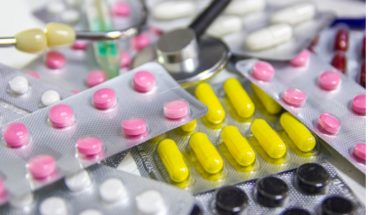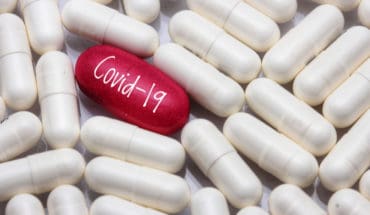The problem of antibiotic resistance is real and it has to be tackled on many fronts. The scale of the problem should not be underestimated. It is no longer a worry for the future, it is happening right now in many parts of the world including the UK. We are already seeing bacteria becoming resistant to the drugs we have to treat them. Our drugs are becoming ineffective. We simply cannot sit back and ignore this problem.
A world without antibiotics means treatable infections like pneumonia or urinary tract infections could kill again. Drug resistant bacteria could make routine operations like caesareans, appendix removal and hip replacements life threatening.
We already know that there is a huge overuse of antibiotic drugs and they are prescribed when they are not really needed. In the last 12 months 34 million doses of antibiotics have been prescribed in England alone, far more than are probably necessary. One of the ways we are looking into reducing this vast number is by looking into ways to test people to see if they actually have a viral or bacterial infection. Recently a test has been successfully piloted for pharmacies, which is likely to be soon widely available in pharmacies, that can pinpoint bacterial infections in the throat with the results being known in 5 minutes. Current tests done by GPs have to be sent to a lab and can take several days to come back, making them impractical. If we can ensure that people who receive antibiotics actually need them, this could dramatically cut the number of prescriptions each year.
Another worry is disposal of unused antibiotics and we are calling on people to empty out their drawers and medical cabinets and bring unused drugs back to their nearest pharmacy for safe disposal.
A recent national survey we commissioned at the RPS found that 21% of British adults have put them in the bin, 5% have flushed them down the toilet and 17% have kept them in case they needed them again.
Fewer than 1 in 5 (18%) adults in Britain have done the right thing and returned their unused antibiotics back to their pharmacy.
This creates a great potential for environmental pollution by inappropriate disposal of medicines. There is a growing concern, especially worldwide, about the role of polluted soil and water environments in the development and dissemination of antibiotic resistance.
It is also important that we educate people about not keeping old medicines in case they should need them again. It’s never a good idea to self medicate at a later date using old drugs. These drugs are only licensed for a particular period, after which they are no longer guaranteed to work or even be safe. Drugs may not be stable for long periods of time and may begin to degrade.
People need to adjust their expectations when it comes to antibiotics – they aren’t a panacea for every ill. Instead, they should be prescribed for people who have bacterial infections which won’t clear up on their own. It is also important that people take the full course as instructed. Even if you feel well, you could still have active bacteria present, and stopping early just allows the strongest pathogens to persist and then multiply, making the problem even worse.
Simple steps like this will help our efforts to preserve antibiotics for the future.
- Amnesty for antibiotics - 19th November 2016
- Burning to be slim - 18th May 2016
- AMR and the importance of finding new ways to prevent and treat infections - 13th May 2016






